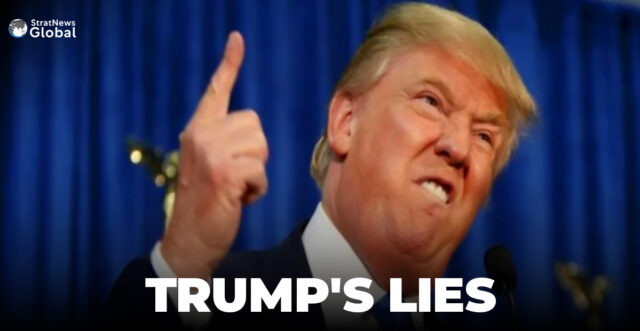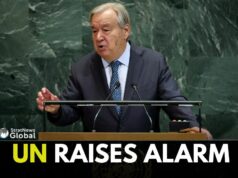Amidst the hypocritical bilge being promoted by U.S. President Donald Trump and his lackeys as reasons for the additional 25 per cent tariff on India for buying Russian oil and thus “bankrolling” Moscow’s war in Ukraine, here is a brief explainer of the actual facts on the ground.
Q1. Has India given a financial lifeline to Putin?
No. India helped prevent a global crisis. Russia supplies nearly 10% of the world’s oil. If India had stopped buying, crude prices could have surged to $200 a barrel. By keeping oil flowing, India stabilised markets and helped global consumers. US Treasury Secretary Janet Yellen and others have praised India’s role.
Q2. Is India using US dollars from trade to buy Russian oil?
False. Indian refiners do not use US dollars for Russian oil. Purchases are routed through traders in third countries and settled in currencies such as the AED. At no point did the US government ask India to stop buying. India’s trade is fully legitimate and within the G7 and EU price-cap rules.
Q3. Is India dealing in black-market oil?
No. There is no black market. Russian oil is not sanctioned like Iranian or Venezuelan oil. It is sold under a price-cap system created by the West to prevent profiteering. If the US wanted to ban Russian oil, it would have sanctioned it. It did not—because Russian oil is needed in global markets.
Q4. Did India suddenly ramp up Russian imports to profiteer?
No. India actually cut fuel prices for its citizens even as global oil spiked to $137 a barrel. State-run oil firms absorbed losses of ₹21,000 crore, while the government taxed exports to prevent profiteering. India’s imports prevented a global price spiral and cushioned inflation worldwide.
Q5. Has India become a laundering hub for Russian oil?
No. India has long been the world’s fourth-largest refiner. Refining crude and exporting fuels is a standard part of the global system. After banning Russian crude, Europe itself relied on Indian diesel and jet fuel. That is stabilisation, not laundering.
Q6. Are India’s refiners sending Putin’s profits abroad?
Wrong. About 70% of refined fuels remain in India to meet domestic demand. One Reliance refinery has been export-focused since 2006, long before this war. Exports of refined fuels have actually declined as domestic use has risen. Oil is fungible and follows market flows.
Q7. Is India punishing US exporters with tariffs while funding Russia?
No. The trade deficit argument is weak. The US runs far larger deficits with China, the EU and Mexico. India’s $50-billion deficit is small by comparison. At the same time, India buys billions worth of US aircraft, LNG, defence equipment and technology.
Q8. Is India freeloading on US defence?
No. India is co-producing jet engines with GE, buying MQ-9 drones, and deepening QUAD and Indo-Pacific defence ties. India is the only major power actively countering China militarily in Asia—a direct strategic gain for the US.
Q9. Should the road to peace in Ukraine run through New Delhi?
Peace cannot come from scapegoating. India has consistently called for diplomacy at the UN. Meanwhile, Europe still buys Russian gas and the US continues to import Russian uranium. India acted responsibly, followed global frameworks, and prevented prices from spiralling.
Q10. What is the truth?
India did not bankroll Russia. It kept markets stable, fuel affordable, and inflation under control—both at home and globally. Scapegoating India may serve politics, but it does not serve facts.
In a career spanning three decades and counting, Ramananda (Ram to his friends) has been the foreign editor of The Telegraph, Outlook Magazine and the New Indian Express. He helped set up rediff.com’s editorial operations in San Jose and New York, helmed sify.com, and was the founder editor of India.com.
His work has featured in national and international publications like the Al Jazeera Centre for Studies, Global Times and Ashahi Shimbun. But his one constant over all these years, he says, has been the attempt to understand rising India’s place in the world.
He can rustle up a mean salad, his oil-less pepper chicken is to die for, and all it takes is some beer and rhythm and blues to rock his soul.
Talk to him about foreign and strategic affairs, media, South Asia, China, and of course India.





